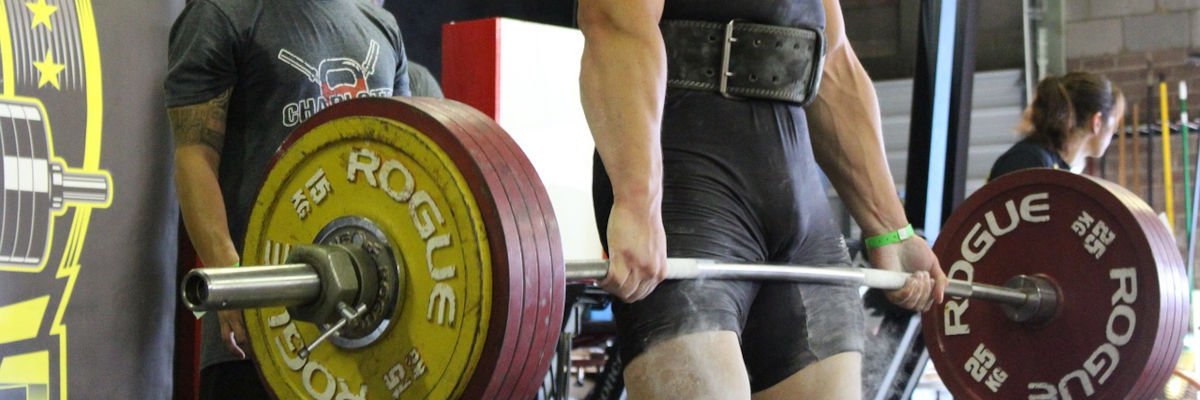When it comes to achieving fitness goals, the centerpiece of the discussion often circles around the sports of bodybuilding and powerlifting. Both approaches have proven successful for numerous sports enthusiasts, yet they differ significantly in ideology, training methodology, and result. In the fitness battlefield of bodybuilding vs powerlifting, which one is your ultimate weapon to rule the gym?
Do you want to sculpt a sleek physique befitting an Adonis, or lift heavy and astound with brute strength? Should you follow a regimen centered on powerlifting for muscle gain, or be submerged deeply into the aesthetics-driven world of bodybuilding? Perhaps, you're even asking yourself the million-dollar question: should I do bodybuilding or powerlifting? Whatever your gym goal may be, this article's purpose is to enlighten you on the significant differences between bodybuilding and powerlifting, ultimately helping you determine the path best suited to you.
Bodybuilding Vs Powerlifting: The Core Differences
Before delving into the showdown of bodybuilding vs powerlifting, it is fundamental to grasp each sport's core secrets and understand their distinct differences.
Bodybuilding: The Sculptor's Approach
Bodybuilding is primarily about sculpting the body, refining each muscle group to its peak level of aesthetic perfection. Bodybuilders strive for balanced muscle development, perfect symmetry, and proportion, emphasizing on muscle size, shape, and condition. Mastering the art of flexing these muscles under the glaring stage lights, bodybuilders impress their audiences with muscle definition and overall aesthetics.
We often associate bodybuilding with figures like Arnold Schwarzenegger, Lee Haney, and Ronnie Coleman, who are symbols not just of muscular strength but also of extreme muscular size, shape, and definition.
Powerlifting: The Lifter's Path
Powerlifting, on the other hand, could care less about aesthetics – it’s all about raw strength. Powerlifting puts emphasis on muscle function rather than muscle form. Instead of shaping and defining muscles, powerlifters focus on the body’s ability to lift maximum weight in one of three conventional lifts: squat, bench press, and deadlift. Powerlifting is less of a "show" and more of a "demonstration" often characterized by astonishing feats of strength like lifting upwards of 500 lbs. It isn’t unusual to see powerlifters not looking as cut or defined as bodybuilders, but do not underestimate them. Their power and strength often surpass expectations.
Powerlifting for Muscle Gain
While bodybuilding still holds much favor as the go-to approach for muscle gain, don't underestimate the power of powerlifting for muscle gain as well. Powerlifting offers an alternative and effective method for maximizing muscle development. More on this intriguing aspect will be discussed in subsequent sections of the article.
Understanding the Distinct Approaches
Contrary to popular belief, bodybuilding and powerlifting are not interchangeable. In powerlifting, the goal is usually about lifting as heavy as possible for a single rep across three specific exercises: the squat, bench press, and deadlift. On the other hand, bodybuilding is focused more on muscle size and symmetry, requiring a blend of cardio, strength training, and detailed nutrition to sculpt the perfect physique.
The Emphasis on Strength and Size
Powerlifting is, by design, focused on cultivating raw strength. It strictly monitors strength progress using weight as a measure, striving to increase the amount lifted in the main exercises. Bodybuilding, conversely, prioritizes size, cut, and aesthetics. The goal is not merely to be strong, but to look strong as well. This is achieved by utilizing a variety of exercises and techniques to maximize muscle size and promote a balanced, symmetrical physique.
Workout Intensity and Volume
The approaches towards workout intensity and volume also significantly differ in both disciplines. Powerlifters typically lift heavy weights for fewer reps, focusing on maxing out strength and power in short bursts. Bodybuilders, on the other hand, generally perform higher volume workouts with moderate weights, targeting muscular endurance and hypertrophy (muscle size growth).
Nutrition and Diets
Both bodybuilders and powerlifters follow strict diets, but their nutritional focus varies. Bodybuilding diets are typically geared to promote maximum muscle growth and minimal fat gain, yet they also cycle to shed fat for competitions – a practice known as cutting. Powerlifting diets, by comparison, cater to performance and recovery. While powerlifters also aim to minimize body fat, they may prioritize a well-rounded diet to maintain high energy levels for intense workouts.
Finding Your Fit
Whether powerlifting or bodybuilding is better for ruling the gym depends on your individual goals and preferences. If you find satisfaction in lifting heavy and pushing your strength boundaries, powerlifting may well be your game. Conversely, if you're drawn to creating an aesthetic and symmetrical physique, bodybuilding may be the better fit. Both disciplines require hard work, dedication, and consistency. Ultimately, the choice needs to be something that you enjoy and are willing to stick with over the long haul.
Regardless of the path you choose, it's important to remember that both bodybuilding and powerlifting come with their own unique set of benefits and challenges. Whatever your choice, always consult with health and fitness professionals to ensure a safe and effective workout regimen.




